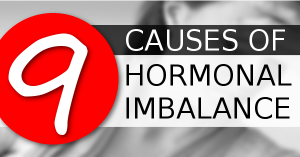Discover if You Could Benefit From Bioidentical Hormone Therapy in Houston, TX, Through Patient Education.
 Over time, everyone experiences a depletion of hormone levels that can lead to an array of symptoms, such as moodiness.
Over time, everyone experiences a depletion of hormone levels that can lead to an array of symptoms, such as moodiness.
For some unlucky ones, though, this hormonal imbalance may begin at a much younger age than average. Everything from environmental factors to stress to diet contributes to the early onset of hormonal imbalances.
How do you know if you’re experiencing signs? And could bioidentical hormone therapy in Houston, TX, benefit you? Let’s take a few moments to take a closer look.
Hormonal imbalances can affect various bodily functions, but Dr. Shel can work with you to help you become a happier, healthier you despite any endocrine dysfunction.
General Information About a Hormonal Imbalance
Your hormones are chemical messengers that travel through your bloodstream and regulate processes and behaviors, such as your glucose level, sex drive, and stress response.
Some of these chemical messengers are specifically sex/reproductive hormones that influence reproduction, sex drive, mood, fat distribution, and muscle mass, to name a few. A decrease in these hormones, particularly testosterone, progesterone, and estrogen, are the ones bioidentical hormone therapy in Houston, TX, can treat.
Symptoms Associated With a Hormonal Imbalance
A hormonal imbalance can trigger a variety of unpleasant symptoms that can impact your health, happiness, and overall quality of life. For instance, headaches and migraines are common in those with a hormonal imbalance, and so is a lack of muscle mass and strength in both men and women, especially since progesterone, testosterone, and estrogen can affect your muscles.
Sex hormones directly interact with certain brain receptors, so it’s no wonder that being deficient in one hormone can impair your memory and lead to foggy thinking. Sleep disturbances can also leave you in a mental fog and impair your memory, as some areas of your brain need sleep to regenerate and function properly.
Though muscle and joint pain are associated with aging and wear and tear, these symptoms can also stem from a hormonal imbalance because they can contribute to a rise in inflammation within the body, alter synovial fluid production, and attribute to a decrease in bone density.
Other potential symptoms are as follows:
- Unexplained weight gain: sex hormones affect your fat distribution, metabolism, and energy levels, which may cause an increase in weight.
- Chronic fatigue: imbalanced hormones may increase stress levels, play a role in metabolism, and contribute to sleep disruptions.
- Insomnia/trouble staying asleep: when progesterone and estrogen fluctuate, you may have trouble falling and/or staying asleep. Testosterone, on the other hand, can indirectly contribute to sleep problems by causing irritability or depression.
- Loss of libido/sexual performance problems: these may arise from a sex hormone imbalance because estrogen, progesterone, and testosterone can all affect your sexual desires. Plus, a decrease in testosterone can cause difficulty in achieving or maintaining erections suitable for sexual intercourse.
-
Mood swings/anxiety/depression: depression, anxiety, and mood swings may occur with a hormonal imbalance as a result of the brain having hormone receptors that influence how you feel and think. Both men and women are more prone to anxiety and depression right around the time of andropause (male menopause) and menopause.
Endogenous Causes
While all the aforementioned may occur when you have a hormonal imbalance, that still doesn’t explain why it happens. The underlying reason varies and may be endogenous, meaning it occurs within the body.
-
The Aging Process
Over time, every man and woman will experience a hormone decrease, though not all men will experience any symptoms. Those who do may encounter signs as early as their 40s. Women usually start to feel the effects in their 40s, too, but some females may notice signs as early as their 30s.
-
Sex Hormone-Binding Globulin (SHBG)
Primarily, the liver produces sex hormone-binding globulin — a protein that binds to hormones and inhibits the hormone from being bio-available to the body. Subsequently, when SHBG is too high, it can cause a male’s free testosterone to be too low.
Your SHBG levels may be too high as a result of age, birth control pills, caffeine usage, and a mineral deficiency, like zinc or magnesium.
-
Genetic Predispositions
Women with a family history of irregular/heavy periods, endometriosis, fibroids, fibrocystic breasts, infertility, breast cancer, ovarian cysts, or endometriosis may be more at risk for a hormonal imbalance. Men may be more susceptible if they have a family history of prostate cancer.
-
Pregnancy and Childbirth
Pregnancy triggers a woman’s body to produce much higher-than-usual amounts of progesterone to support the uterine lining, stimulate the growth of blood vessels in the uterus, and prevent premature contractions.
Within 24 hours after giving birth, progesterone levels rapidly decline, sometimes lower than initially. Each subsequent pregnancy can lessen progesterone levels even further. We should note that chronically low levels are associated with depression and anxiety.
-
Thyroid-Binding Globulin
Suffering from estrogen dominance can prompt the liver to produce excess amounts of thyroid-binding globulin — a protein that binds to thyroid hormones and blocks them from being used properly in the body.
A standard thyroid panel doesn’t always provide for an accurate diagnosis of this because the insufficient levels may be particularly in the tissue, which doesn’t consider the levels in the tissue. Therefore, we may conduct a comprehensive thyroid evaluation, symptom analysis, and sex hormone testing.
-
Candida (Yeast Overgrowth)
While your body has yeast naturally in the digestive tract, skin, and mouth, and the vaginal canal of women, this fungus grows in minuscule amounts.
If levels increase too much, toxin levels can rise in your body as a result of the excess waste they excrete, and you then experience skin rashes, toenail fungus, fatigue, anxiety, brain fog, vaginal and urinary tract infections, and various other symptoms of a fungal infection.
Not to mention, it can produce a waste product that mirrors your hormones. Your body then thinks it has enough of that hormone and produces less, leading to a deficiency.
Exogenous Factors
Some causes are exogenous, meaning they stem from an external cause.
-
Hormone-Based Contraception
Certain contraceptives, such as birth control pills, shots, and some intrauterine devices, are the main factor in a hormonal imbalance in women due to their active ingredient, progestin — a synthetic variation of progesterone that no longer maintains the same chemical structure as the natural occurring hormone.
It shuts down progesterone production in your body, which may not resume once you discontinue use. Because progesterone is a key precursor to the production of other steroid hormones, i.e., testosterone and cortisol, it could have a domino effect on the body.
-
Xenoestrogens
Non-organic beef and dairy are pumped up with synthetic growth hormones known as xenoestrogens — substances similar in structure to estrogens that can bind with estrogen receptors. These estrogen-like chemicals are also found in household cleaners, pesticides, acetones, and plastics.
They’re ten to a hundred times more potent than naturally occurring estrogen. In women, these create estrogen dominance, while males may experience low testosterone as a result.
-
Stress
Prolonged stress is straightforward when it comes to a hormonal imbalance. For instance, stress takes a toll on the adrenals and leads to adrenal fatigue. Because these glands contribute to the creation of other hormones, dysfunction in them can wreak havoc on your hormone levels.
Consider Bioidentical Hormone Therapy in Houston, TX
 If you’re noticing signs of a hormonal imbalance, whether you received a formal diagnosis or not, please reach out to us.
If you’re noticing signs of a hormonal imbalance, whether you received a formal diagnosis or not, please reach out to us.
We can discuss your situation, provide the necessary testing, talk about your options, and possibly create the ideal treatment plan with bioidentical hormone therapy in Houston, TX.
With this option, the hormone is plant-based and mimics your natural hormone, ultimately combatting the signs of an imbalance. We offer pellet therapy that uses a similar concept as well — a nature-based approach to hormone replacement.
Check out our reviews here and truly get a feel for what makes us a sound option in your quest for better health and overall quality of life.
Contact us today at 281-609-4439 for bioidentical hormone therapy to balance hormone levels, reduce the prevalence of any symptoms, and feel happier and more content. A better you awaits with Dr. Shel! And we’re conveniently located near Denny’s.



















